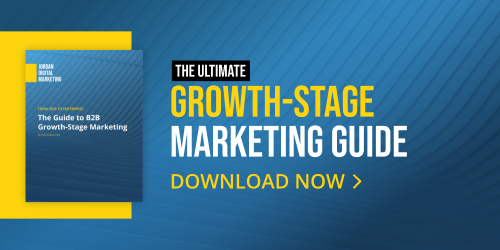Growing AI Search Visibility Phase 2: The Marketer Playbook for Authority Building
In July, word got out that YouTube was testing a new feature for hyperlinking keywords that will allow marketers to connect with viewers without disrupting their video. The feature hyperlinks keywords in the comments section and takes users to a YouTube search page while maintaining the video in a Miniplayer, which means users will no longer have to navigate away from a video to a search engine when compelled.
The tests are new, and there’s no way for advertisers to use it – yet. Keywords are determined by YouTube based on single words or phrases that they deem “engaging.”
Although some marketers are concerned the hyperlinks could redirect users to competitor brands and pages because of the lack of control, the goal of this new experimental feature is to benefit marketers. Ideally, YouTube’s plan for hyperlinked keywords will increase the amount of viewers and engagement on a sponsored ad.
What kind of controls do marketers have?
There aren’t a whole lot of proactive moves for marketers to make at this point, although they can remove links from comments in their brand videos if they want. Otherwise, YouTube selects keywords from the comments to hyperlink (commenters cannot add or modify links, though they can opt out of them). It’s important to note that the YouTube search results that appear after the hyperlink is clicked may be populated with competitor results.
I suspect we’ll see brand marketers creating their own comments for their videos to entice YouTube to hyperlink, but that’s only a guess at this point.
What caveats does this feature carry?
It’s to be determined how relevant YouTube’s chosen keywords will be to the video content – if there’s misalignment, the engagement and down-funnel numbers will be poor out of the gate. Users can opt out of the trial, so a bad first impression will curtail adoption of the feature. And content moderation is a biggie – hyperlinks tied to unruly or offensive comments would provide cautionary tales, so YouTube will need to stay on top of the discourse.
What comes next?
If this experiment goes well – that is, adoption rates and user engagement are high – I anticipate that YouTube will create an opportunity for paid advertising to leverage hyperlinks within the comments.
If that happens, the key will be the level of control afforded to advertisers; at the very least, I can see YouTube enabling negative keywords or exclusions to help advertisers avoid driving traffic to rival sites.
In a best-case scenario, this feature will develop into a reliable source of traffic on the world’s second-largest search engine. For the possible scope alone, it’s worth keeping tabs on the rollout.
Tags:

Aug 4, 2023 8:39:25 AM



-Dec-04-2025-09-58-32-5416-PM.png?width=500&height=500&name=Regular%20Blog%20Hero%20(1)-Dec-04-2025-09-58-32-5416-PM.png)

